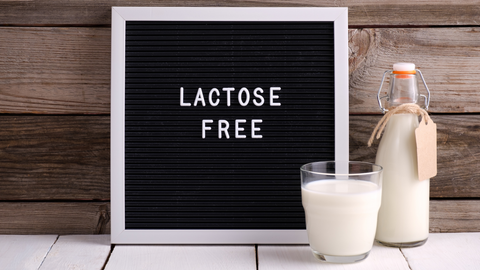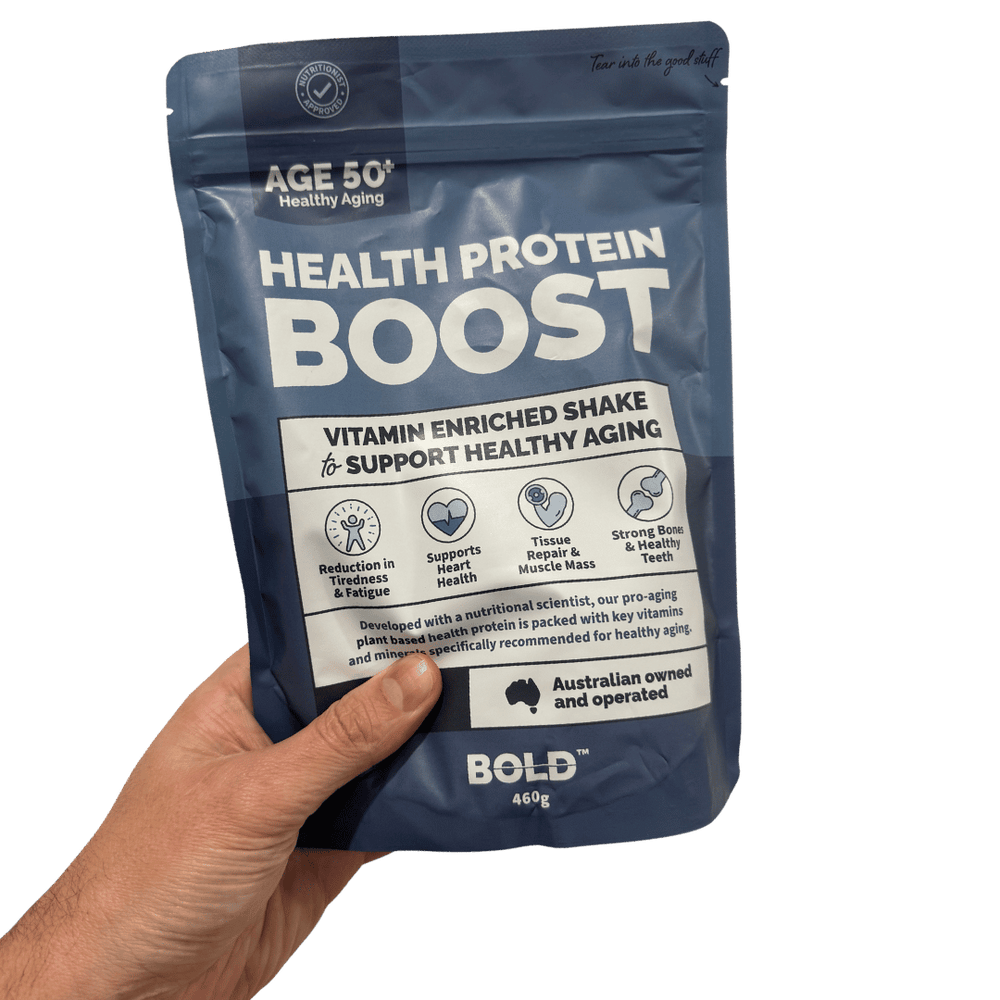How Lactose Intolerance Affects Your Digestion
The Benefits of Lactose-Free Foods

Topics covered:
- What is lactose intolerance?
- Symptoms of lactose intolerance
- Lactose-Free Foods
- Summary
Lactose intolerance, the inability to digest lactose and it can wreak havoc on the gut, leaving many people feeling very uncomfortable.
In Australia, up to 5% of Caucasians and up to 75% of Non-Caucasians are lactose intolerant. These percentages could be potentially higher with an increasing trend in self-diagnosis. In this article, we'll explain what lactose intolerance is, the symptoms you might experience and how the benefits of eating lactose-free foods.
What is lactose intolerance?
Let's start by defining what exactly lactose is. Lactose is a sugar that's found in milk and other dairy products. Lactose digestion is handled by a digestive enzyme called lactase. For humans, our ability to produce lactase is significantly reduced after weaning from breast milk or formula, and many people grow up unable to digest lactose without problems.
So why do some people have no problem then? There are studies that have shown some populations developed a gene mutation that allowed for a trait known as “lactase persistence”. In these populations, they report fewer issues with digesting lactose. Lactose intolerance is more commonly seen in Asian, African, Mexican, Native American and Mediterranean populations.
Lactose intolerance can also be seen after someone experiences a bout of sickness or infection, particularly following an infection like gastro. In these cases, the small intestine may temporarily stop making lactase so it's best to minimise your intake of lactose and opt for lactose-free foods or drinks until your gut has repaired.
Symptoms of Lactose Intolerance
There are several symptoms associated with lactose intolerance. Some of the most common ones you might experience include:
Stomach cramps or pain particularly after eating dairy products
- Nausea
- Diarrhoea
- Bloating
- Fatigue
- Cramping
- Flatulence (passing gas)
Some people might even experience other symptoms such as headaches, eczema, fatigue, mouth ulcers, and even joint and muscle pain. These symptoms usually occur as the result of inflammation in the body and an overacting immune system.
For people that may suspect they have lactose intolerance, it’s a good idea to seek a proper diagnosis from your doctor.
Lactose-Free Foods
So where do lactose-free foods come into play? Firstly, it's really important not to cut out a whole food group like dairy from your diet. Dairy contains lots of valuable nutrients like calcium, zinc, protein and magnesium. Lactose-free foods are a great way of still getting all these nutrients without the bothersome lactose.
Luckily, lactose-free foods are on the rise and there are many more readily available options in the supermarkets now. You can find lactose-free milk, cheese, yoghurt and even ice cream! There are also many other foods that you might not think of as being dairy that often contains lactose such as bread, breakfast cereals, salad dressings, sauces, soups and protein powder. So always check the labels!
If you are trying to increase your protein intake by using a protein powder, opt for non-whey, plant-based protein powder like BOLD Health Protein Plus. Whey protein contains small amounts of lactose within them. To mix your protein, blend it with water, almond milk, or oat milk as these are lactose-free.
If you're cooking at home from scratch, there are lots of ways to make lactose-free meals. You can use lactose-free milk in recipes in place of regular milk, or coconut oil or olive oil in place of butter or margarine. And finally, when it comes to sweet treats - go for dark chocolate over milk chocolate.
Summary
Lactose intolerance can have a significant impact on digestion. It's important to be aware of the symptoms and how to manage them by opting for lactose-free foods where possible. Dairy is a valuable source of nutrients, so try not to cut it out completely from your diet and explore the many lactose-free food options that are now available.

References
- https://www.betterhealth.vic.gov.au/health/conditionsandtreatments/lactose-intolerance
- https://www.ncbi.nlm.nih.gov/pmc/articles/PMC3048992/
- https://www.hopkinsmedicine.org/health/conditions-and-diseases/lactose-intolerance
- https://www.healthdirect.gov.au/gastroenteritis
- https://www.healthdirect.gov.au/lactose-intolerance
----------------------------------------------------------------------------------------------------------
Medical Disclaimer
The information provided in this blog post is for general information only, it is not intended as medical advice. For medical advice please consult with a qualified medical professional who is familiar with your individual medical needs.


